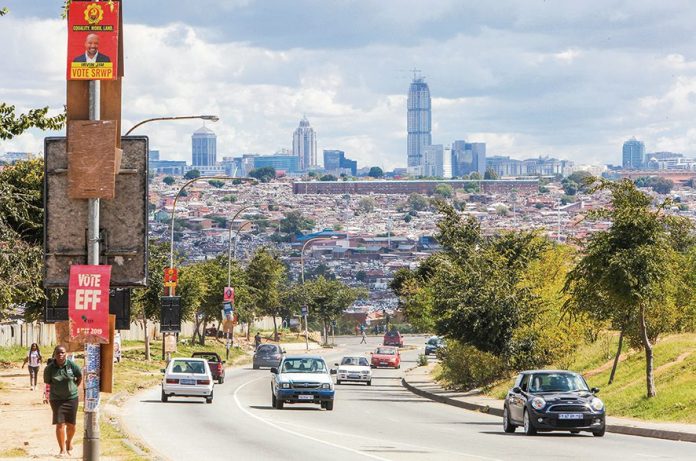Johannesburg – South Africa’s politics and its leadership bar is low across all political parties.
This renders the entire multi-party system non-progressive for the interests of the masses.
This leads to the masses withdrawing from formal political participation.
The low voter turnout in the recent local government elections is not simply the rejection by the masses against the governing ANC, but overall disillusionment against the entire post-94 conservative political system.
[membership level=”1″]Disillusionment against the ANC within a working multipartyism would have led voters to choose other parties.
When the entire system does not work for the masses, it becomes immaterial which party governs, or who the political leader at the helm is.
When the masses vote by staying at home, it is not the liberal voter, or liberal democracy education the masses need, rather it is the quality of individual political parties and the quality of party political contestation across parties that needs elevation.
This situation is dire in the traditional liberation movements.
This includes the ANC, the South African Communist Party, the Pan Africanist Congress, and the Azanian People’s Organisation.
These liberation parties are besieged with the following weaknesses: the inability to think outside the prescribed post-94 textbook liberalism; the inability to redefine a real new South Africa, and the innovative contours to achieve a prosperous society for the majority; the lack of internal party cohesion; and the lack of internal party discipline.
The consequence of the above are political parties with poor membership and leadership.
Steeped in factionalism, both the membership and the factional leadership tend to reinforce the poverty of each other, and one another.
This manifests itself in a lack of solid ideologies, strategies, progressive internal discussions and the inability to lead in public discourse and opinion.
Simply put, South Africa’s multipartyism has the numbers but lack substance.
It does not inspire the masses to vote. The sum total is the death of liberation politics.
In the absence of an astute leadership, individualism has become the norm, even the emerging non-productive black elite seek individual space around the tables of monopolies.
The black masses collate themselves in the corner of survival – just to make it through the day.
Every five years, the ought-to-be black leaders of the struggle go to the masses to renew the black hope in exchange of their vote.
And so, the system reproduces itself every other five years, while the quality of life of the masses deteriorates.
There is a direct relationship between the growth and prosperity of people on the one hand, and the quality of the political leadership.
The growth and prosperity of countries such as China, Singapore and Rwanda are directly linked and drawn from the strength of their respective political leadership.
The growth and prosperity of the white minority in South Africa during apartheid has a direct correlation with the strength of the political leadership of the National Party (NP).
The NP progressively penetrated all aspects of white lives: education, social, sports and economic upliftment, among others.
The NP also adversely castrated black people’s lives in all its manifestation.
This NP legacy is well entrenched in the economic pillars of South Africa today, and the black political leaderships seems too crippled to address this.
For this reason, the conservative white-dominated DA does not necessarily need strong leadership, for two reasons: first, the white political leadership of the NP, entrenched apartheid in institutions, values, and education system, among others.
Second, the black political leadership lacks the political will to untangle the system.
The rhetoric of change is not matched by the actual change. Rather, there is a more concerted effort to convince the haves that in the pursuit of “radical change”, apartheid beneficiaries will not lose their wealth.
There is no need for black political parties to unite.
However, black people share a common history of marginalisation and disenfranchisement.
This needs to be addressed and requires an astute black political leadership.
• Tembe is a political analyst and executive director of Kunjalo CDR.
Follow him on his Twitter @KunjaloD

Follow @SundayWorldZA on Twitter and @sundayworldza on Instagram, or like our Facebook Page, Sunday World, by clicking here for the latest breaking news in South Africa. To Subscribe to Sunday World, click here.
Sunday World
[/membership] [pmpro_signup submit_button=”Register” level=”1″ login=”1″ redirect=”referrer” short=”false” title=”Thank you for choosing Sunday World, to read this article for free, please register below at no cost.” short=”true” custom_fields=”true”]


